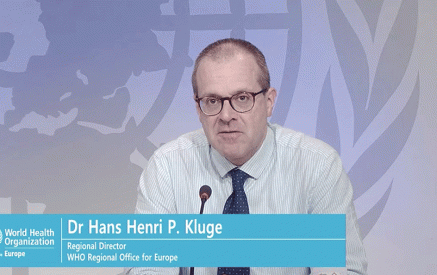Op-ed published at New Europe
25 June 2020
By Stefana Miladinovic (MP, Serbia)
Read also
As COVID-19 cases have risen, social and economic uncertainty has increased, generating fears of another economic crisis. In order to keep life going and ensure business continuity, national digital agendas have been implemented rapidly, with new electronic modalities established quickly for responding to specific crisis-induced demands.
Countries worldwide responded to the outbreak not only by implementing quarantines, closing borders and public spaces but also with the mobilisation of resources to sustain the infrastructure systems and digital services and created new and innovative digital solutions.
Services have been launched within hours or days to provide primarily vital industries, as well as citizens, with the necessary resources. The crisis has affected every segment of life and all vital systems, ranging from healthcare, security, education and training, the judiciary, economy and movements in the world markets, commerce, energy and transportation, to culture and sports.
During the last months, many countries have indeed observed an acceleration of the transition process towards the digital economy and the adoption of digital solutions.
Responses from governments and citizens have confirmed their willingness to adapt to new ways of communication and organization of life due to the circumstances. The economy has suffered a huge blow, with some sectors being completely or partially affected in terms of business shutdowns, resulting in both job losses and layoffs. For the most part, companies have been able to maintain a full or partial business efficiency, without major interruptions, by adapting their systems of work.
Telecommuting has become the norm for most offices in the public and private sectors; home-based learning through video conferencing platforms is keeping students engaged; more and more companies have replaced entire roles with digital solutions, tools and services; restaurants and retailers’ incomes have been depending for months only on take-outs and delivery services through online ordering systems. Mobile apps were introduced in several countries to track the infections. The pandemic has also induced parliaments to change their rules of procedure to ensure remote working and limit physical meetings.
A prerequisite for taking part in this form of work, learning and socialisation is, of course, internet access. In the global pandemic crisis, online access has proved to be a window to the world, and for most of us also a prerequisite for continuing living our lives without major disruption. Lack of internet in certain regions is limiting connectivity and inhibiting possibilities for students to attend online classes and professionals to telecommute. Moreover, is hampering access to basic online services to citizens.
We can fairly say that while speeding up the transition towards a more digital world, the COVID-19 pandemic has also exposed digital divides between countries, and social groups within the same country.
It is clear that more advanced countries were at an advantage, but whether and to what extent the crisis has influenced the reduction of inequalities of social groups in the digital world will be only confirmed in the coming months.
In fact, research shows there are divisions between social groups within countries, making some demographic groups digital, while for others the process of digital literacy is slower or more difficult to achieve. Therefore, it is justified to say that digitalization can affect equality in society. The digital divide is inhibiting large parts of the population to take advantage of technologies, with the risk they will be left behind even further in a more digital post-pandemic world.
As parliamentarians and members of the OSCE Parliamentary Assembly, we have a role to play. Through legislation and recommendations, we must ensure that all citizens have access to the same services and opportunities offered by digitalisation. The pandemic has shown us the potential of a digitally transformed world. The possibility to master new tools, the introduction of new practices and business models can be seen as positive consequences of the crisis. Without forgetting the huge impact on the environment and the climate.
The crisis has forced us to react quickly and find new solutions. Reducing inequality is achieved not only through digital technology but also through the policies and practices that accompany its development and implementation. The role of parliamentarians in this regard must be effective. In addition to monitoring the implementation of measures during the pandemic, parliamentarians also need to monitor innovative responses and identify what can we bring with us in a post-pandemic world.
Stefana Miladinovic is a Member of the Serbian Parliament and in the OSCE Parliamentary Assembly serves as Special Rapporteur on Digital Agenda.
For more on the OSCE PA’s response to the COVID-19 pandemic, please click here.
###
The OSCE Parliamentary Assembly is comprised of 323 parliamentarians from 57 countries spanning Europe, Central Asia and North America. The Assembly provides a forum for parliamentary diplomacy, monitors elections, and strengthens international co-operation to uphold commitments on political, security, economic, environmental and human rights issues.




























































